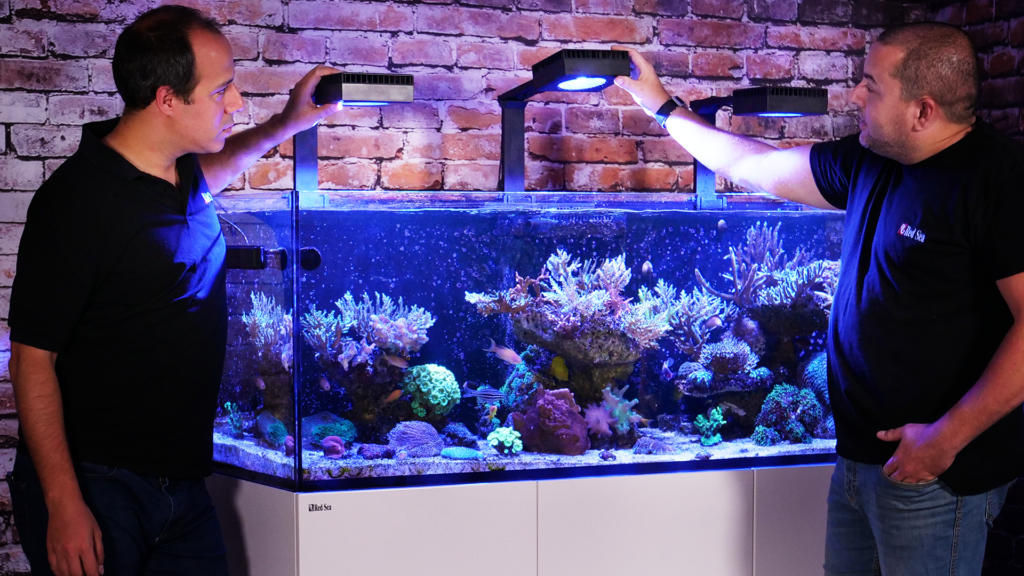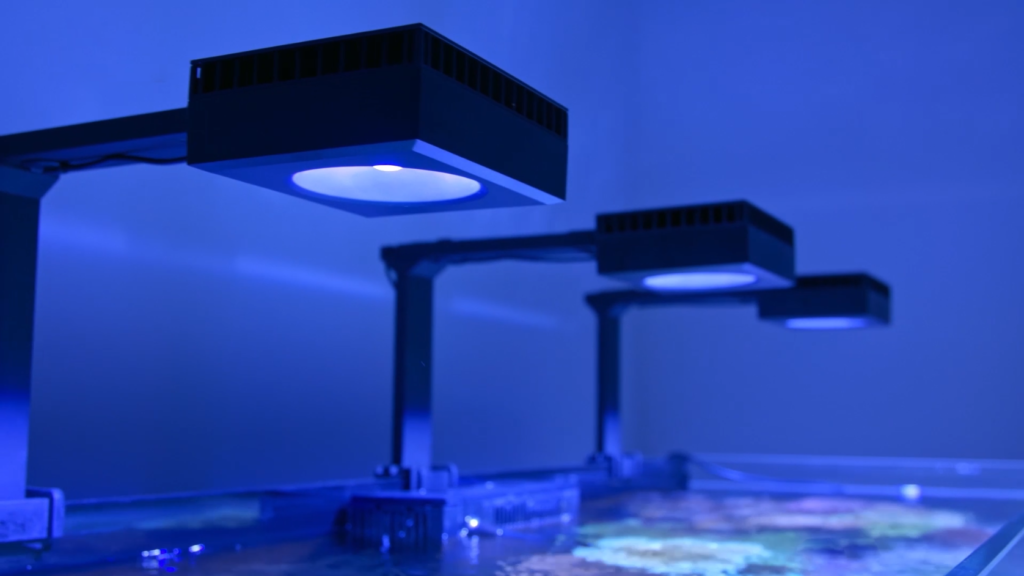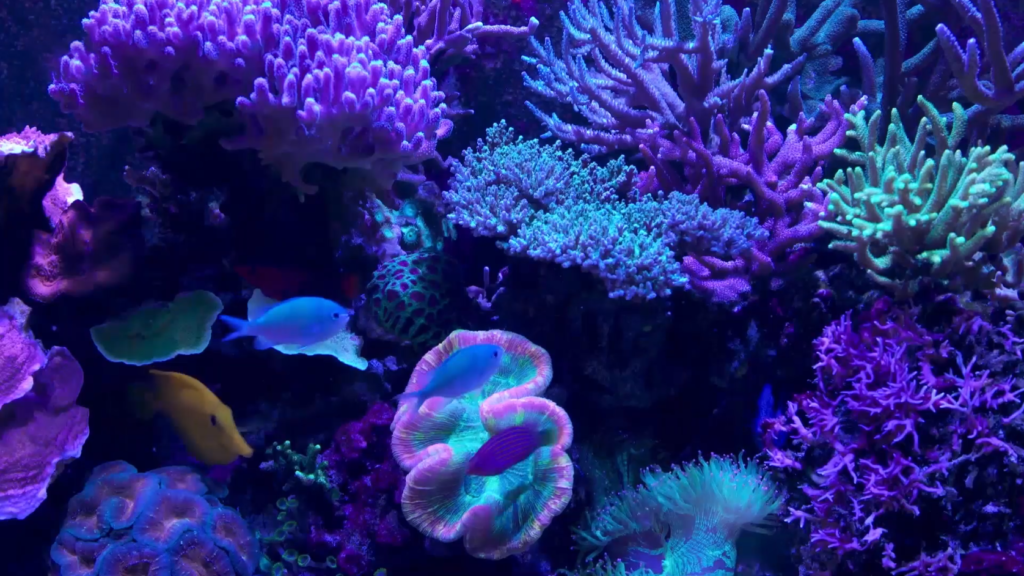
Sharon Ram
Red Sea's Chief scientist
- January 26, 2020
- 3 minutes read
Light intensity & photoperiod relationship
Lighting #4 | Red Sea Insights
Today I’ll dive deep into light vs. dark period and the relationship between intensity and photoperiod. What’s safe and what’s not?
In the previous blog, I wrote about the required light spectrum and intensity for your reef aquarium. Today I’ll explain about photoperiod, which is the third parameter of REEF-SPEC lighting. I’ll explore the relationship between photoperiod and light intensity and how it affects your reef.
Let’s start with the basics:
Like every photosynthetic organism corals need light, but there’s only so much they can take. That means that the duration of the daily photoperiod is very important. Even the optimal amount of daily photosynthetic activity generates residual energy inside the coral that must be released, so they need a period of darkness, just as much as they need the light.
Our research has shown that to get optimal coral growth and coloration, light and dark periods should be about the same. Also, the intensity and photoperiod are inversely proportional, which means if one goes up, the other must come down and vice-versa. So, for a 24-hour daily cycle, we recommend approximately 12 hours of light with an average PUR intensity of between 100 to 450 micromoles, followed by 12 hours of darkness.
Moonlight should also be taken into account as part of the total daily light energy and therefore should either be at very low levels or be included as part of the photoperiod. Our research did not only give us these guidelines, but it also provided an insight into what is going on inside the coral.
We all instinctively understand that not enough light will limit coral vitality, but what about too much of it? Overexposure to light, meaning exceeding the maximum amount of energy that the corals can handle, has undesired effects. We’re talking about things like the formation of free oxygen radicals and the conversion of unutilized light energy to heat, both of which cause the accumulation of toxins in the coral tissues, and when they occur together, they make matters worse.
What you’ll see is the polyps and soft tissue retracting into the skeleton of the corals to reduce their exposure to light or paling of the soft tissue. These are the first signs of photoinhibition, and it’s the coral’s auto-protection mechanism kicking in. Fortunately, these effects are reversible, but prolonged overexposure may cause long-term damage.
If you don’t have REEF-SPEC lighting, then when setting up your aquarium lighting watch out for a few of the settings that can cause photoinhibition:
- The wrong light spectrum – Set your lighting as close as possible to the coral PUR spectrum.
- The right spectrum at a too high intensity – Avoid hotspots of over 450 PUR at the water surface.
- The right intensity for too long a period – Apply the recommended photoperiod guidelines of about 12 hours of light and dark per day.
So, to recap: Like spectrum and intensity, the photoperiod has a significant impact on the health and vitality of your corals.
And a quick tip, if you want to enjoy your reef a bit longer over the weekends, no problem, just increase the photoperiod but make sure you compensate by reducing the intensity for a few hours during the day.
Now, if you choose to use Red Sea’s ReefLEDs you don’t have to worry about getting it right, they’ve already been designed according to the spectrum and intensity guidelines we discussed in this article series.
The photoperiod is up to you, and don’t worry about overdoing it, our ReefBeat App will let you know if you are about to go over the edge.


